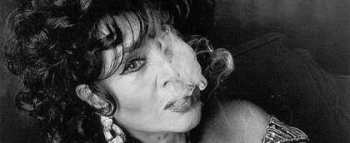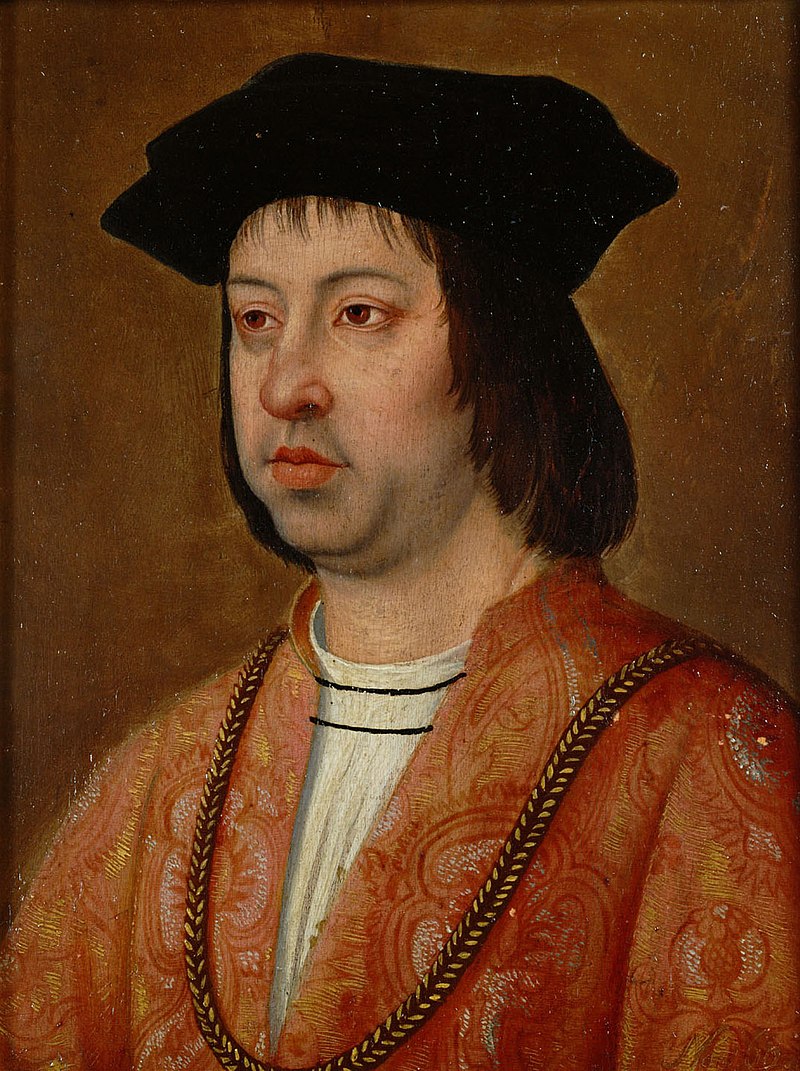March 10
Saint’s Day for Cayo, Víctor, Alejandro, Pablo, Anecto and Macario.
988 - the Count of Barcelona Borrell does not renew the pact of allegiance with the new Frankish king, Hugh Capet, and establishes the independence of fact territories under their power. The veracity of this event has been criticized, because in those days the king was fighting a revolt in northern France.
1126 - Alfonso VII of Leon enters King of Leon and Castile and Leon proclaims.
1126 - Alfonso I of Aragon defeat in Lucena or Puente Genil (Córdoba) almorávide Seville army led by Abu Bakr, son of the emir Yusuf ibn Ali in the Battle of Arnisol.

Sara Montiel - Archive photo
1405 - After visiting the antipope Benedict XIII in Avignon, Martin I, King of Aragon, comes to Barcelona.
1496 - After establishing the city of Santo Domingo, Christopher Columbus departs for Spain, leaving his brother in command
1526 - Carlos I of Spain in Sevilla marries his cousin, the Infanta Isabel of Portugal.
1496 - After establishing the city of Santo Domingo, Christopher Columbus departs for Spain, leaving his brother in command
1526 - Carlos I of Spain in Sevilla marries his cousin, the Infanta Isabel of Portugal.
1535 - Spaniard Fray Tomás de Berlanga, the fourth Bishop of Panama, discovers the Galápagos Islands by chance on his way to Peru
1543 - Spanish founded the town of Antigua (Guatemala), who served as the capital of Central America.
1543 - Spanish founded the town of Antigua (Guatemala), who served as the capital of Central America.
1624 - England declares war on Spain
1625 - the Imperial College of San Isidro is created in Madrid .
1625 - the Imperial College of San Isidro is created in Madrid .
1452 - the Catholic King, Fernando II of Aragón, is born in the castle of Sos, in the north west of Zaragoza province. Centuries later it was renamed as Sos del Rey Católico.
1496 - Christopher Columbus sets sail from La Isabela, in the modern-day Dominican Republic, to return to Spain, ending his second voyage of discovery to the Americas.
1729 - begins the construction of the Plaza Mayor in Salamanca
1785 - is created in Spain the Royal Company of Commerce of the Philippines, supported by the Bank of San Carlos and the Five Major Guilds of Madrid.
1814 - Fernando VII returns to Spain and the Spanish Constitution of 1812 was accepted.
1885 - Presented to Alfonso XII, King of Spain, the Memorial des Greuges or Memory in defense of the interests of Cataluña
1919 - Radiotelegraph service between England and Spain is inaugurated.
1923 - in Villarreal, Spain, Club Deportivo Villarreal, predecessor of Villarreal CF was founded.
1972 - Two shipyard workers of Bazan, in Ferrol, are killed by armed police while demonstrating for improving working conditions in a day of general strike. Since 2006 it is commemorated by the Working Class Day Gallega.
1973 - Spain and the People's China signed an agreement to restore diplomatic relations.
2015 - The Bank of Spain intervened in the Banco Madrid, owner of the Andorra Private Bank, after the latter was intervened by the Andorra National Finances Institute
1496 - Christopher Columbus sets sail from La Isabela, in the modern-day Dominican Republic, to return to Spain, ending his second voyage of discovery to the Americas.
1729 - begins the construction of the Plaza Mayor in Salamanca
1785 - is created in Spain the Royal Company of Commerce of the Philippines, supported by the Bank of San Carlos and the Five Major Guilds of Madrid.
1814 - Fernando VII returns to Spain and the Spanish Constitution of 1812 was accepted.
1885 - Presented to Alfonso XII, King of Spain, the Memorial des Greuges or Memory in defense of the interests of Cataluña
1919 - Radiotelegraph service between England and Spain is inaugurated.
1923 - in Villarreal, Spain, Club Deportivo Villarreal, predecessor of Villarreal CF was founded.
1972 - Two shipyard workers of Bazan, in Ferrol, are killed by armed police while demonstrating for improving working conditions in a day of general strike. Since 2006 it is commemorated by the Working Class Day Gallega.
1973 - Spain and the People's China signed an agreement to restore diplomatic relations.
2015 - The Bank of Spain intervened in the Banco Madrid, owner of the Andorra Private Bank, after the latter was intervened by the Andorra National Finances Institute
2017 - ‘The Government has warned about of serious effects of Brexit in Spain’ – an official report analyses the impact of the exit of UK from the EU – Spain will have to pay more money to Brussels and will see a fall in both exports and GDP – the Gibraltarians could need a visa to cross the border.
2017 - ‘Repsol has found the largest oil field for 30 years in the US’ – After prospecting in Alaska since 2008 the new field is under the northern slope and holds an estimated 1.2 billion barrels of light crude – equivalent to Spain’s use for four years.
Births
Births

Ferdinand II of Aragon, the Catholic - - Kunsthistorisches Museum Wien, Bilddatenbank.
1452 - Ferdinand II, was King of Aragon from 1479 until his death. In 1469, he married Infanta Isabella, the future queen of Castile, which was regarded as the marital and political "cornerstone in the foundation of the Spanish monarchy". As a consequence of the marriage, in 1474 he became de jure uxoris King of Castile as Ferdinand V, when Isabella held the crown of Castile, until her death in 1504.
At Isabella's death the crown of Castile passed to their daughter Joanna, by the terms of their prenuptial agreement and Isabella‘s last will and testament, and Ferdinand lost his monarchical status in Castile.
Joanna's husband Philip became de jure uxoris King of Castile, but died in 1506, and Joanna ruled in her own right.
In 1504, after a war with France, he became King of Naples as Ferdinand III, reuniting Naples with Sicily permanently and for the first time since 1458.
In 1506, as part of a treaty with a France, Ferdinand married Germaine of Foix of France, but Ferdinand's only son and child of that marriage died soon after birth.
(Had the child survived, the personal union of the crowns of Aragon and Castile would have ceased.) In 1508, Ferdinand was recognized as regent of Castile, following Joanna's alleged mental illness, until his own death in 1516.
In 1512, he became King of Navarre by conquest.
Ferdinand had a role in inaugurating the first European encounters in the future Americas, since he and Isabella sponsored the first voyage of Christopher Columbus (1451–1506), in 1492.
That year was the final victory in the war with Granada which defeated the last Muslim state in Iberia and all of Western Europe
This brought to a close the centuries-long Christian reconquest of Iberia.
For that Christian victory, Pope Alexander VI, born in the Kingdom of Valencia, awarded the royal couple the title of Catholic Monarchs.
At Ferdinand's death Joanna's son, Ferdinand's grandson, Charles I, who was co-ruler in name over all the several Iberian kingdoms except for Portugal, succeeded him, making Charles the first King of Spain.
However, during the regency of Ferdinand, many called him the King of Spain as distinct from his daughter Joanna, "queen of Castile".
1549 - Francisco Solano, missionary and saint (d. 1610).
1760 - Leandro Fernández de Moratín, poet and dramatist (d. 1828).
1772 - Melitón Pérez del Camino, soldier.
1787 - Francisco de Paula Martínez de la Rosa y Berdejo, Spanish playwright and politician, Prime Minister of Spain (d. 1862)
1791 - Don Ángel de Saavedra y Ramírez de Baquedano, 3rd Duke of Rivas , was a Spanish poet, dramatist and politician born in Córdoba. He is best known for his play Don Álvaro; o, La fuerza del sino (1835), the first romantic success in the Spanish theatre.(d. 1865).
1814 - Julian Sanz del Rio,philosopher.
1833 - Pedro Antonio de Alarcon, writer (d. 1891).
1844 - Pablo de Sarasate, violinist and composer (Spanish Dancer), born in Pamplona (d. 1908)
1870 - Archer Milton Huntington, archeologist and American Spanish scholar (d.1955).
1928 - Sara Montiel. actress and singer (The Last Torch Song, The Violet Seller) She was born as María Antonia Abad Fernández in Campo de Criptana, Ciudad Real. (d. 2013)
1935 - José Antonio Labordeta, singer songwriter and politician (d. 2010).
1946 - Bigas Luna, filmmaker (d. 2013).
1947 - Gerardo Vera, filmmaker.
1955 - Enrique San Francisco, comic actor.
1958 - Domingo Ramón, runner
1960 - Antonio Corgos, long jumper
1974 - El Cid, bullfighter.
1978 - Marta Torné, actress and TV presenter.
1981 - Ángel López, footballer
1992 - Pablo Espinosa, actor.
Deaths
1825 - José Bustamante, sailor and politician (b. 1759).
1962 - Juan March, arms trafficker and businessman (b. 1880).
1995 - Ovidi Montllor, singer and actor.
2003 - Víctor Alba, politician journalist writer and university professor (b. 1916).
1833 - Pedro Antonio de Alarcon, writer (d. 1891).
1844 - Pablo de Sarasate, violinist and composer (Spanish Dancer), born in Pamplona (d. 1908)
1870 - Archer Milton Huntington, archeologist and American Spanish scholar (d.1955).
1928 - Sara Montiel. actress and singer (The Last Torch Song, The Violet Seller) She was born as María Antonia Abad Fernández in Campo de Criptana, Ciudad Real. (d. 2013)
1935 - José Antonio Labordeta, singer songwriter and politician (d. 2010).
1946 - Bigas Luna, filmmaker (d. 2013).
1947 - Gerardo Vera, filmmaker.
1955 - Enrique San Francisco, comic actor.
1958 - Domingo Ramón, runner
1960 - Antonio Corgos, long jumper
1974 - El Cid, bullfighter.
1978 - Marta Torné, actress and TV presenter.
1981 - Ángel López, footballer
1992 - Pablo Espinosa, actor.
Deaths
1825 - José Bustamante, sailor and politician (b. 1759).
1962 - Juan March, arms trafficker and businessman (b. 1880).
1995 - Ovidi Montllor, singer and actor.
2003 - Víctor Alba, politician journalist writer and university professor (b. 1916).
